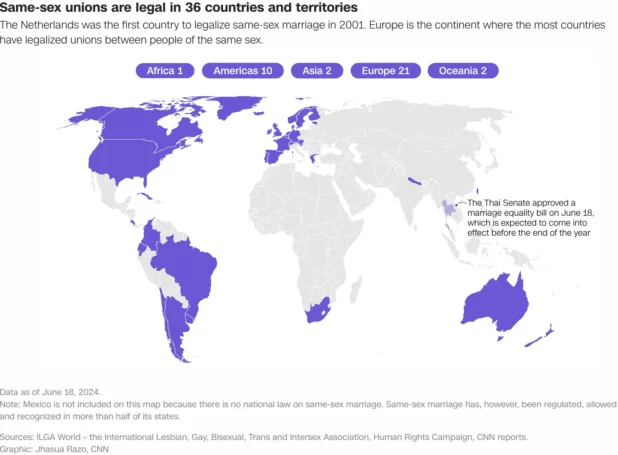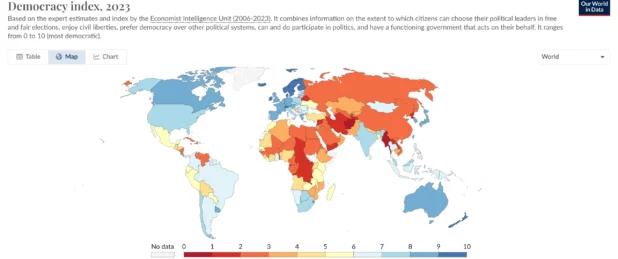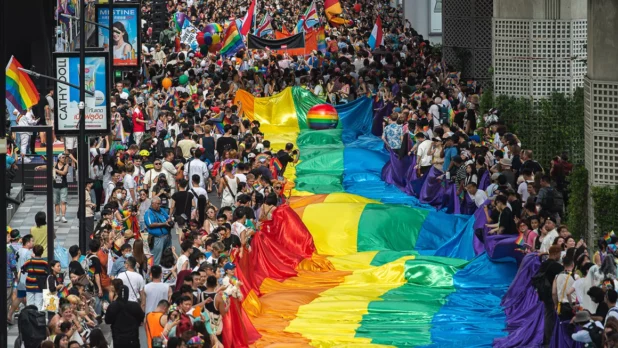These Asians need more democracy and they need it quickly.
There are young boys waiting to have their anuses rammed, and this block on democracy is blocking those cocks.
CNN:
Rainbow flags rippled in the wind as gay and lesbian couples walked hand in hand down a makeshift aisle in Bangkok’s busy Siam shopping district.
Thailand’s Senate had just passed a marriage equality bill, and the local LGBTQ+ community was in the mood to celebrate.
While the ceremonies were symbolic enactments of same-sex weddings, the real thing could be just around the corner.
“When I was young, people said people like us couldn’t have a family, can’t have children, so marriage was impossible,” Bangkok resident Pokpong Jitjaiyai told CNN on the day the bill was passed.
“Now I can freely say that I am gay,” said Pokpong, who can’t wait to marry his partner Watit Benjamonkolchai.
Well.
Not for long you can’t.
The backlash is already here.
The law, passed in June, still requires the thumbs-up from the king, but that is expected soon, clearing the way for Thailand to become the first jurisdiction in Southeast Asia to legalize same-sex marriage, and Asia’s third after Taiwan in 2019 and Nepal last year.
But the recent flurry of progress for marriage equality in Asia could stop there, with no other government in the region looking likely to follow suit anytime soon.
“The truth is not a lot of governments are moving as proactively as the one in Thailand,” Suen Yiu-tung, associate professor of gender studies at the Chinese University of Hong Kong, told CNN.
More than 30 jurisdictions worldwide now recognize same-sex marriage, according to the Pew Research Center. Since the first same-sex marriage law was passed in the Netherlands in 2001, progress has been made mostly in Europe, the Americas and Australasia.
Just across Thailand’s borders, homosexuality is illegal in Myanmar and Malaysia. Bans also exist in Sri Lanka, Brunei, Bangladesh and Indonesia’s ultraconservative province of Aceh. Maximum penalties range from lengthy jail terms to caning, according to the Human Dignity Trust, a United Kingdom-based body that supports strategic litigation worldwide against laws prejudicing the LGBTQ+ community.
Cane the queers!
“Despite some historic wins in the region… the human rights of LGBTI people across Asia continue to be denied,” said Nadia Rahman, policy advisor at Amnesty International’s Global Gender, Racial Justice, Refugees and Migrants Rights Programme. She added that people from these communities face “criminalization, threats of arrest, discrimination, digital surveillance, harassment, online abuse, stigma and violence.”
While liberalization in Thailand, Nepal and Taiwan was propelled by those places’ unique cultures and socio-political circumstances, scholars and activists said, most other Asian governments are held back by conservative social attitudes, influential religious groups and the lack of robust democratic systems.
…
Unlike in mainland China – where LGBTQ+ activism is taboo and can draw backlash from authorities – the movement has thrived in Taiwan. Campaigner Jennifer Lu, director of gay rights advocacy Outright International in Taiwan, noted the importance of the island’s functional democratic system in the process of liberalization.
“This kind of democratic practice really creates the foundation of this progressive vibe,” Lu said.
Thailand itself is not going to keep this in place.
No more Asian countries are going to fall to anal.
The jig is up.
This anal agenda only works when there is a powerful state – America – forcing it on other countries. And America is losing the ability to do that.
Taiwan’s Vice President @ChingteLai, a leading candidate in the 2024 race, marched in the Taipei Pride Parade on Saturday. Accompanied by his @DPPonline comrades, Lai has became the highest ranking Taiwanese official to be part of Asia’s largest LGBT gathering. pic.twitter.com/2vO5qYjWz8
— Joyu Wang (@joyuwang) October 28, 2023



